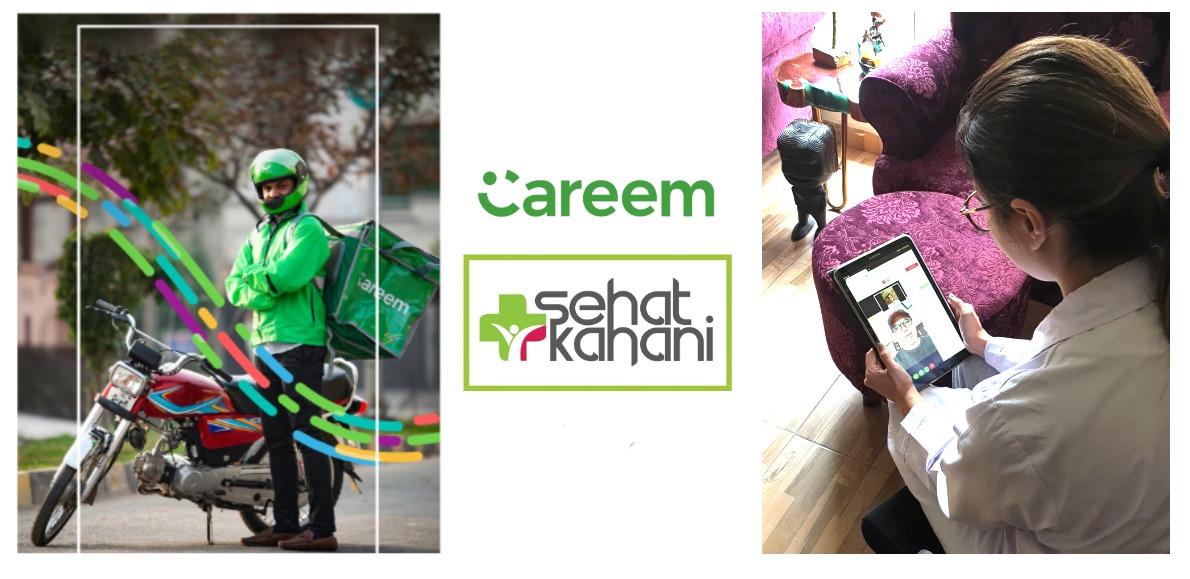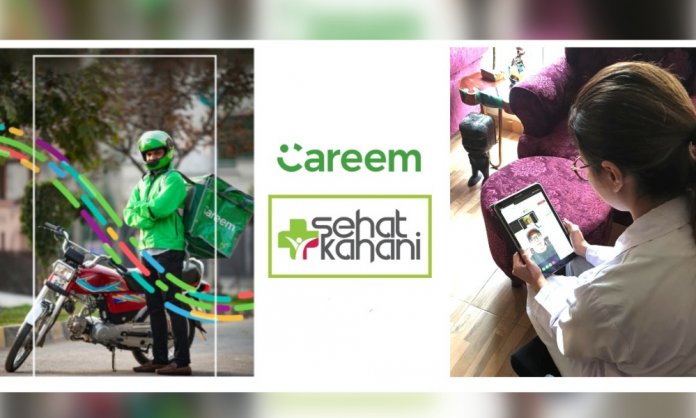Karachi, July 28, 2020: Careem, the internet platform for the greater Middle East and Pakistan, has partnered with Sehat Kahani, a leading e-health and telemedicine service provider, to provide free of cost, 24/7 medical and healthcare through teleconsultation to its Captains.
During the pandemic, everyone needs to remain safe and pay the utmost attention to their wellbeing. With this collaboration between Careem and Sehat Kahani, Captains are now enabled to avail of a host of services from the latter’s portfolio, with a 60-second response rate to queries. The services include 24/7 access to qualified doctors, along with providing access to- at-home laboratory and pharmacy services.
Commenting on the development, Zeeshan Hasib Baig, Chief Executive Officer and Country General Manager Careem Pakistan, stated: “The Safety and wellbeing of our customers and captains have been a priority for us since the inception of Careem. In these trying times, these services have become more important than ever. This partnership will allow an opportunity to provide medical and healthcare consultation to our deserving Captains.”

Dr. Sara Saeed Khurram, CEO & Co-Founder Sehat Kahani, said, “In the ongoing COVID-19 situation, where mobility is restricted, medical and healthcare services are essential and cannot be avoided. This partnership aims to provide an alternative to their home, keeping social distancing in mind and 24/7 availability of certified doctors.”
Careem has always been at the forefront of coming up with initiatives aimed at providing Safety to its Captains and customers. Earlier, Careem had launched an insurance scheme for its captains in case they are infected with the coronavirus. Similarly, Careem has also launched a series of educational videos to raise awareness for Safety.
Careem, which recently became a Super App, has more than 500,000 Captains registered on its platform so far. Transforming into a Super App, Careem offers multiple opportunities as it expands its services from the mobility of people to adding mobility of things as well as mobility of money, including food, essential daily deliveries, peer to peer credit transfer, and mobile top-ups.








































